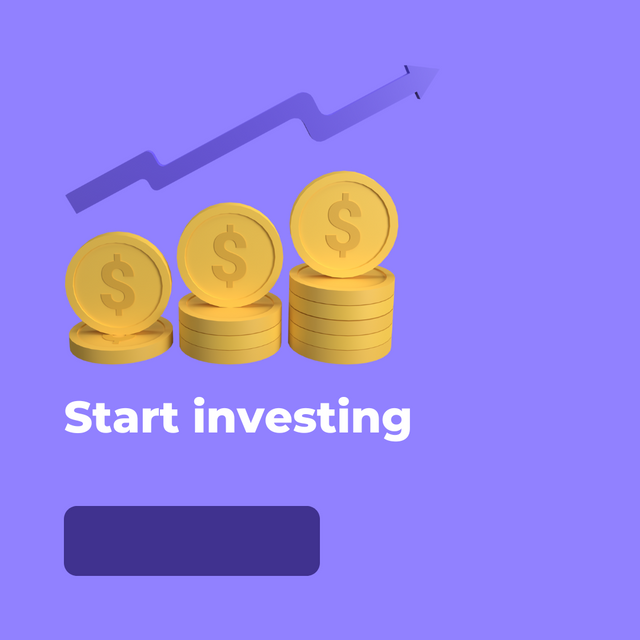Navigating the Investment Landscape: Cryptocurrencies vs. Forex

Introduction to the World of Investment :
Investment is a financial discipline that involves allocating money into various assets with the hope of generating future returns. This practice dates back centuries and has evolved over time to include a wide range of investment vehicles, from traditional stocks and bonds to cryptocurrencies and the foreign exchange market (Forex). In an increasingly interconnected and technologically advanced world, investment opportunities have multiplied, allowing investors from diverse backgrounds to access markets once reserved for a financial elite.
The Basics of Investment
Investing essentially involves allocating resources (usually money) to various assets in the hope of generating a profit. The main types of assets include:
Stocks: Buying shares of publicly traded companies.
Bonds: Lending money to governments or corporations in exchange for a fixed interest rate.
Real Estate: Purchasing property to earn rental income or capital appreciation.
Commodities: Investing in raw materials like gold, oil, or wheat.
Cryptocurrencies: Buying digital currencies like Bitcoin or Ethereum.
Forex: Trading currencies to take advantage of exchange rate fluctuations.
The Rise of Cryptocurrencies and Forex
Cryptocurrencies and Forex are two of the most dynamic and complex investment markets today. While they share some common traits, they differ significantly in terms of operation, risks, and opportunities.
Investing in Cryptocurrencies
Cryptocurrencies are decentralized digital currencies that use blockchain technology to secure transactions and control the creation of new units. Since the inception of Bitcoin in 2009, the cryptocurrency market has exploded, with thousands of cryptocurrencies in circulation.

Advantages:
High Return Potential: Some cryptocurrencies have seen their value multiply thousands of times over a few years.
Accessibility: Anyone can invest in cryptocurrencies with a smartphone and an internet connection.
Technological Innovation: Cryptocurrencies are at the forefront of financial technology, offering innovative solutions like smart contracts.
Disadvantages:

Extreme Volatility: Cryptocurrency prices can fluctuate dramatically in a short time.
Regulatory Uncertainty: Regulations vary widely from country to country and can impact the value of cryptocurrencies.
Security: Investors can be vulnerable to hacks and scams.
Investing in Forex
The Forex, or foreign exchange market, is where currencies are traded against each other. It is the largest financial market in the world, with a daily trading volume exceeding $6 trillion.
Advantages:
High Liquidity: Forex is extremely liquid, meaning investors can buy and sell quickly.
24/7 Market: Unlike most financial markets, Forex is open 24 hours a day, five days a week.
Leverage: Forex brokers often offer high leverage, allowing investors to control large positions with relatively little capital.
Disadvantages:
Complexity: Forex requires a deep understanding of global economies and monetary policies.
Leverage Risk: While leverage can multiply gains, it can also multiply losses.
Market Manipulation: Central banks and large institutions can influence exchange rates.
Brokers for Buying Fractional Shares
Buying fractional shares, also known as fractional investing, allows investors to purchase a part of a share rather than the entire share. This makes stock investing more accessible, especially for those who do not have large amounts of capital. Here are some popular brokers offering this option:
Robinhood: Known for its commission-free trades, Robinhood allows buying fractional shares and cryptocurrencies.
Fidelity: Offers a wide range of financial services, including commission-free fractional investing.
Charles Schwab: Allows the purchase of fractional shares through its Schwab Stock Slices service.
Stash: An investment service that offers both financial advice and the ability to buy fractional action.
The Basics of Investment
Investing essentially involves allocating resources (usually money) to various assets in the hope of generating a profit. The main types of assets include:
Stocks: Buying shares of publicly traded companies.
Bonds: Lending money to governments or corporations in exchange for a fixed interest rate.
Real Estate: Purchasing property to earn rental income or capital appreciation.
Commodities: Investing in raw materials like gold, oil, or wheat.
Cryptocurrencies: Buying digital currencies like Bitcoin or Ethereum.
Forex: Trading currencies to take advantage of exchange rate fluctuations.
The Rise of Cryptocurrencies and Forex
Cryptocurrencies and Forex are two of the most dynamic and complex investment markets today. While they share some common traits, they differ significantly in terms of operation, risks, and opportunities.
Investing in Cryptocurrencies
Cryptocurrencies are decentralized digital currencies that use blockchain technology to secure transactions and control the creation of new units. Since the inception of Bitcoin in 2009, the cryptocurrency market has exploded, with thousands of cryptocurrencies in circulation.
Advantages:
High Return Potential: Some cryptocurrencies have seen their value multiply thousands of times over a few years.
Accessibility: Anyone can invest in cryptocurrencies with a smartphone and an internet connection.
Technological Innovation: Cryptocurrencies are at the forefront of financial technology, offering innovative solutions like smart contracts.
Disadvantages:
Extreme Volatility: Cryptocurrency prices can fluctuate dramatically in a short time.
Regulatory Uncertainty: Regulations vary widely from country to country and can impact the value of cryptocurrencies.
Security: Investors can be vulnerable to hacks and scams.
Investing in Forex
The Forex, or foreign exchange market, is where currencies are traded against each other. It is the largest financial market in the world, with a daily trading volume exceeding $6 trillion.

Advantages:
High Liquidity: Forex is extremely liquid, meaning investors can buy and sell quickly.
24/7 Market: Unlike most financial markets, Forex is open 24 hours a day, five days a week.
Leverage: Forex brokers often offer high leverage, allowing investors to control large positions with relatively little capital.
Disadvantages:
Complexity: Forex requires a deep understanding of global economies and monetary policies.
Leverage Risk: While leverage can multiply gains, it can also multiply losses.
Market Manipulation: Central banks and large institutions can influence exchange rates.
Brokers for Buying Fractional Shares
Buying fractional shares, also known as fractional investing, allows investors to purchase a part of a share rather than the entire share. This makes stock investing more accessible, especially for those who do not have large amounts of capital. Here are some popular brokers offering this option:
Robinhood: Known for its commission-free trades, Robinhood allows buying fractional shares and cryptocurrencies.
Fidelity: Offers a wide range of financial services, including commission-free fractional investing.
Charles Schwab: Allows the purchase of fractional shares through its Schwab Stock Slices service.
Stash: An investment service that offers both financial advice and the ability to buy fractional shares.
Interactive Brokers: Known for its low costs and extensive investment options, including fractional shares.
Conclusion
Investing in cryptocurrencies and Forex offers unique opportunities but also carries significant risks. It is essential for investors to understand the fundamental differences between these markets and choose reputable brokers to optimize their investment strategies. Fractional investing also makes the stock market more accessible, allowing a broader range of investors to participate in financial markets. Whether you are a novice or experienced investor, a thorough understanding of these options can help you make informed decisions and maximize your potential returns.